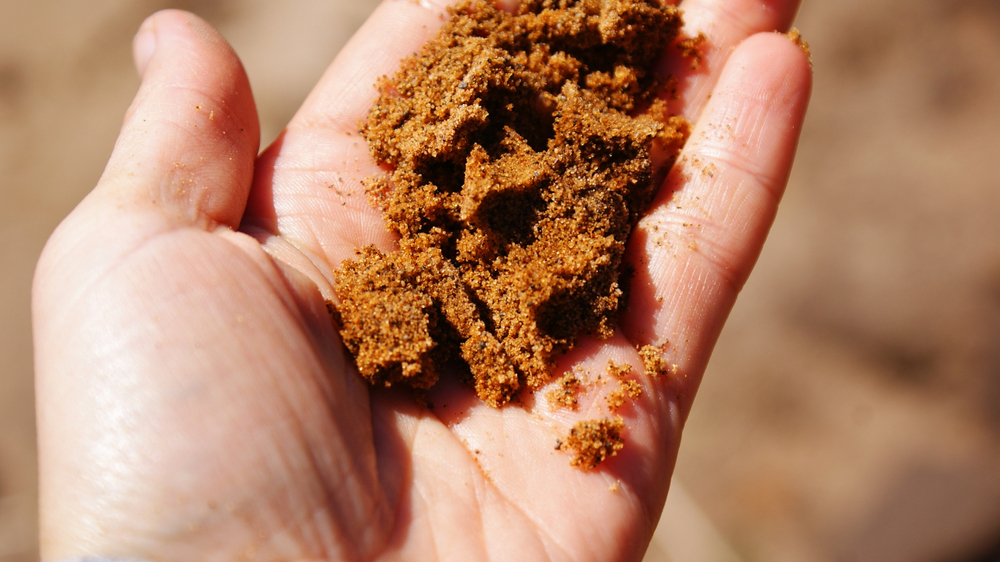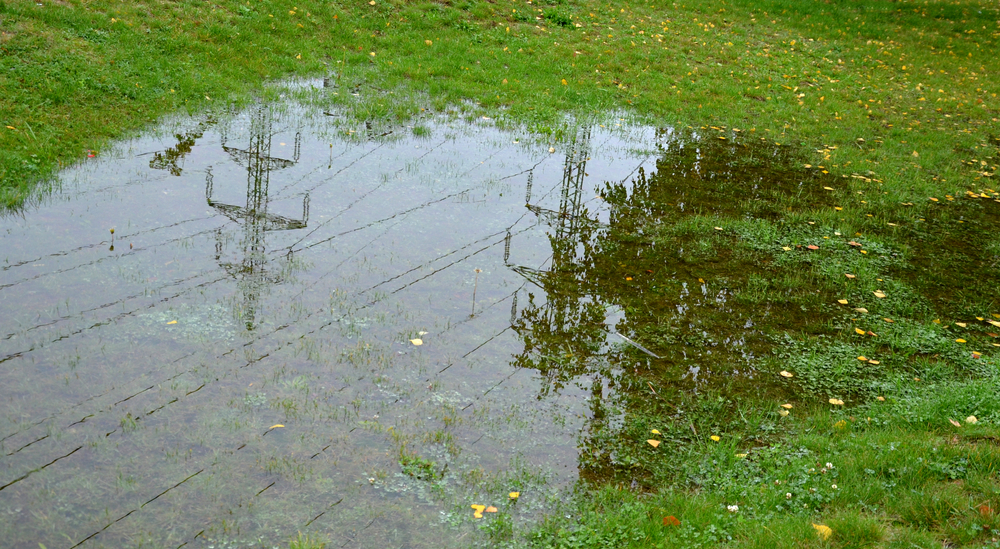Having a good base soil is vital for proper drainage in your garden. Different types of soil affect how well water moves through them, with sandy soils draining quicker than clay ones. By amending your soil with organic matter, you can enhance its drainage capabilities. Start with the foundation of your soil for healthy plant roots and thriving greenery.

Importance of Base Soil Composition
Understanding the significance of base soil composition is essential for effective drainage management. The base soil acts as the foundation for your plants, impacting their growth and overall health. Different soil types have varying drainage capabilities, affecting how water moves through the soil.
Sandy soils drain quickly due to larger particles, while clay soils drain slower due to smaller particles. By knowing your base soil composition, you can make informed decisions on how to improve drainage for your plants. Amending the soil with organic matter or creating raised beds can help enhance drainage in areas with poor soil composition.
Properly managing base soil composition sets the stage for healthy plant growth and thriving gardens.
Effects of Poor Drainage on Plants
Poor drainage in your garden can lead to detrimental effects on your plants’ health and growth. When excess water accumulates around plant roots due to poor drainage, it deprives them of oxygen, leading to root rot and ultimately causing the plants to wilt and die.
Furthermore, waterlogged soil can create an environment where harmful pathogens thrive, increasing the risk of diseases that can further weaken your plants. Nutrient uptake is also hindered in waterlogged soil, as roots struggle to access essential minerals, stunting the growth and overall development of your plants.
To ensure your plants thrive, it’s crucial to address poor drainage issues promptly to prevent this negative impact.
Factors Affecting Soil Drainage
To optimize soil drainage, it’s essential to consider various factors that directly impact how effectively water moves through the soil. Soil texture plays a crucial role in drainage, with sandy soils allowing water to drain quickly, while clay soils retain water, causing poor drainage.
The structure of the soil also affects drainage, as compacted soil hinders water movement. Slope gradient influences drainage, with flat surfaces leading to water accumulation, affecting drainage negatively.
Additionally, the presence of organic matter can improve drainage by enhancing soil structure and water-holding capacity. Understanding these factors can help you assess and improve soil drainage in your garden or landscaping, ensuring proper water flow for healthy plant growth.
Strategies for Improving Base Soil Drainage
Improving soil drainage can be achieved by implementing strategic changes in soil composition and structure. To enhance drainage, consider incorporating organic matter like compost or peat moss into the soil. These materials help break up compacted soil, allowing water to flow more freely.
Additionally, adding sand can improve drainage by increasing soil porosity. Ensure proper soil grading to prevent water from pooling and consider installing drainage systems like French drains or perforated pipes in areas prone to waterlogging.
Avoid overwatering plants, as excess water can lead to poor drainage. By following these strategies and maintaining a healthy balance of water in your soil, you can improve drainage and create an optimal environment for plant growth.
Role of Base Soil in Plant Health
To promote healthy plant growth, understanding the significance of base soil in providing essential nutrients and support is key. Base soil serves as the foundation for plants, offering stability and anchorage for their roots. It acts as a reservoir for water and nutrients, ensuring that plants have access to vital resources for their development.
Additionally, base soil plays a crucial role in maintaining proper aeration levels, which is essential for root respiration and overall plant health. By providing a balanced environment for roots to grow and thrive, base soil contributes significantly to the overall well-being of plants, enabling them to resist diseases, withstand environmental stressors, and reach their full potential in terms of growth and productivity.
Frequently Asked Questions
Can Different Types of Base Soil Compositions Affect the Overall Drainage of a Garden or Agricultural Field?
Different types of base soil compositions can significantly impact the overall drainage of your garden or agricultural field.
It’s vital to choose the right soil to ensure proper water flow and prevent issues like waterlogging.
How Can the Depth of Base Soil Impact the Drainage of Water and Nutrients for Plant Roots?
For effective water and nutrient drainage for plant roots, ensure the base soil is at the right depth.
A deep base soil allows water to flow freely, providing plants with essential nutrients and preventing waterlogging issues.
Are There Specific Base Soil Additives or Amendments That Can Help Improve Drainage in Poor Soil Conditions?
If you’re dealing with poor soil conditions, consider adding perlite, sand, or compost to enhance drainage.
These additives can help improve soil structure, prevent waterlogging, and create a healthier environment for plant roots to thrive.
What Role Does Base Soil Play in Preventing Waterlogging and Root Rot in Plants?
Base soil is crucial in preventing waterlogging and root rot in plants. It helps excess water drain away effectively, ensuring roots have access to oxygen and nutrients.
Proper base soil composition is key for healthy plant growth.
How Can the Ph Level of Base Soil Affect the Drainage Capabilities and Overall Health of Plants in a Garden or Farm Setting?
Maintaining the proper pH level in your base soil is crucial for ensuring optimal drainage and overall plant health. Imbalanced pH can lead to poor drainage, affecting root growth and nutrient absorption.
Regular testing and adjustments are key.
Conclusion
In conclusion, proper drainage is essential for healthy plant growth. Base soil plays a crucial role in ensuring adequate drainage by providing a stable foundation for plant roots to thrive.
Without a well-draining base soil, plants can suffer from waterlogged conditions, leading to root rot and other issues. By understanding the importance of base soil composition and taking steps to improve soil drainage, you can create an optimal environment for your plants to flourish.




